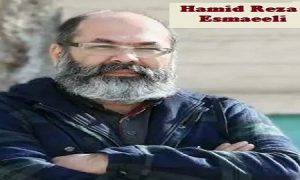The Baha’ism organization, the safe organization of the Western Services
Dr. Hamid Reza Esmaeeli, the author and researcher in the field of policy and religions and of the researchers of the institute of “the political researches and studies” who have had profound activities in Baha’ism domain. Recently, a book has been published by him called “the political organization of Baha’ism” including remarkable and less listened views about the Baha’i organization.
– Please, explain something about your antecedent of your compilations and scientific studies? In the name of Allah, the compassionate, the Merciful. I have studied in the field of political sciences, political sociology branch. During last 20 years, my studies have been in the field of the relationship between religion and policy. Anyway, I have studied and been active in the political thought of Iran and the Islamic world, political sociology, Iran and the Iranian issues branch. During this period of time, I have performed various activities related to this domain; for example, some in foreign policy domain and some in the daily issues of Iran.
-Have you previously written work(s), compilation(s) or article(s) concerning the issue of Baha’ism organization?
Following my activities, I became enthusiastic about the issue of cults in the Iranian issues. In 1392 S.H. anyway, one of the important cults in Iran is Baha’ism cult. At that time, I started new studies about cults particularly Baha’ism as a political cult. As a matter of fact, I chose Baha’ism issue first. Then, I studied other cults. I began in 1392 S.H. I published nearly 7 articles. Several articles and one or two book are being published. One of my books is about the historiography of Babism and Baha’ism. One of my works is about Edward Brown which hasn’t been published yet. The other is about theories concerning the emergence of Babism. I have other unpublished works concerning the periodical “the faith news”, the economic conditions of the Baha’is during the second Pahlavi, the analysis of the political system of political ideology of Baha’ism.
-There are two approaches in your book: Sectarian and organizational ones. What is the difference(s) between these two approaches? What is the sectarian and organizational definitions of Baha’ism?
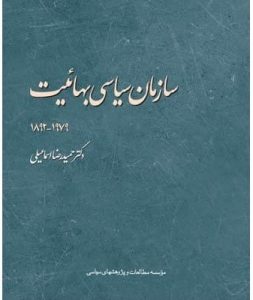
Earlier 20th century when the study of cults became known in America and the European countries, the organizational task and organization were being paid attention so much. In fact, the western researchers and sociologists separated three concepts: faith, religion and cult. As a matter of fact, religion was branches which were located under the faith. Cult was several branches in various religions based on rituals and behavioral creeds. When some researchers are searching about the political cults, they are using the concept of “cult”. They are emphasizing on the element of “organization”, but the fact is that in public language and also the academic one, it hasn’t been observed that a cult is an organizations and possesses organized and centralized actions. When you use the word cult even the political cult, this element is being ignored. On the other side; in the concept of cult, the element of belief is really important and prominent while in organization or the political organization, the structure, organizing and the administrative discipline are emphasized and accidently belief is being less emphasized. If it is spoken about a belief, it will mean all political organizations and political ideology not a belief. In classic studies of Baha’ism, the element of belief is being consistently stressed; that is, at will be investigated that which worships are there?
Another note is that political groups and organizations in Iran can be classified as follows: 1) The assemblies which are small (10-20 people) which have friendly relationships, 2) Parties, 3) Influential political organizations or the pressure group. The most important not is that the importance of assemblies and the pressure group organizations are more important than parties in the aren’t stable and are seasonal. They are born fast and are destroyed fast. Basically, the characteristic of parties in Iran is instability.
What is the difference between influential political organizations or pressure groups and parties? Why are you stressing on organizational aspect of Baha’ism?
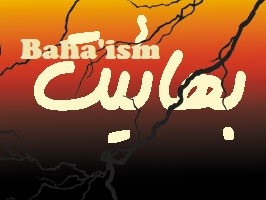
Parties easily announce to share with policy to gain power. They participate at various elections offer lists and they aren’t afraid to say to compete for power. However, the political organization or the very pressure groups are not so. In fact, they continue their existence having another covers. There are other groups having political behavior in religious cover. One of them is Baha’ism organization which became influential. Due to the supports of America and Zionism, this organization developed and got influential in Pahlavi regime. It can’t be compared with other parties during this periods of time. The issue of Baha’ism isn’t merely a theological one. The Baha’is mas is active, recruits new forces and proselytize in favor of Baha’ism by the name of creed and religion. This is one dimension of the adventure. The other one is the activities of the Baha’i mass for increasing population and recruiting cause the Baha’i leaders to gain influence and power in high-ranking levels. The other reason that causes me to choose the word organization for Baha’ism is that in the cult there is person in the top of the group who possesses a holy state, but since Baha’ism lost its personal leadership and didn’t possess a holy leader, its organization is being administered in the form of council and in group. A 9-people council called “the universal house of justice” is administrating it. This is one of the components if a cult.
You have divided Baha’ism into two general periods in your book and introduced its main and today period as an American-Zionistic organization which was started after Hussein Ali Nouri’s death (the founder of Baha’ism). Please explain about this view and theory?
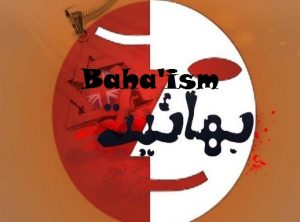
The fact is that as long as the founder of Baha’ism, Hussein Ali Nouri was alive, he tried to have social relationships with the countries like France, Russia, England and etc. in order to be supported. He was writing letters from Acre [located at occupied Palestine) that we don’t have good conditions here. We are dying and… in order to attract the western countries supports and attentions. As long as the founder of Baha’ism was alive, the Baha’ism was an organization without coherence. After his death, his son called Abdul Baha took over the leadership of the organization and cult. Following these policies, he sent one or two people to America including “George Ibrahim Kheirullah (A Cristian person who claimed for becoming Baha’i). The aim was to recruit in the American ruling board. Anyway, they did it in Palestine too. For instance, the prominent protestant priest called “Henry Jesab” worked in that area for more than 50 years. He did extensive activities to found Israel. One of his activities was having relationships with Baha’ism. Ibrahim Kheirullah became familiar with some people such as Thornton Chase and Get Singer and started organizing Baha’is in America. Thus, what is later seen as organized Baha’ism was formed in Chicago, America. The Americans and people like Chase formed the assemblies and created the leadership council. Form that time on, they gradually suggested this pattern to Abdul Baha himself who was alive at that time and it was posed in Palestine, too. After Abdul Baha, it was expanded in Shoqi Effendi’s periods of time. In one period of time it was totally a cult. This is the time when Hussein Ali Nouri himself was alive even during the period of time of Abdul Baha. As I stressed, the Baha’ism organization has been produced in America and is not an Iranian phenomenon. Baha’ism and its primitive core which was a cult isn’t American.
What is the difference between Baha’ism aims during the first and second periods of the activity of the cult?
In fact, they have a common aim which is developing and recruiting. The other common aim is political. Not only Baha’ism, but also Babism was a political movement, too. It has come to gain power. From the beginning, it tried to proceed via armed campaign. When it fails, it tries the coup. When the coup fails, it assassinates. There was a political aim since its emergence. It seems Zionistic thoughts have been penetrated into it.
During Pahlavi regime in which the government was the supporter of Baha’ism, they tried to develop more in the government, economy, medium, culture, educational system and etc. After the Islamic Revolution, this political organization was struck.
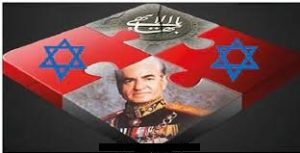
As mentioned in the book, the first volume has been compiled stressing on being the organizational Baha’ism and the organization before the revolution. Which new notes will be classified about Baha’ism in the second volume? Generally speaking, which notes have been remained to be investigated about Baha’ism?
The truth is that this is just a slice in my studies in Baha’ism domain. It should be said that more details must be investigated in Baha’ism study domain. At the end of the book, 124 topics have been suggested for next researchers to work on. Another topic is the hidden Jewish people in Baha’ism. We have heard, the phenomenon of the hidden Jewish people in Christianity, the Islamic world and other countries, but we haven’t paid attention to it in Baha’ism. For example: it is said a Jewish person has become Christian while in 20th century when it was the time when Judaism and Zionism were powerful it seems unlikely for a Jewish person to become Christian. The Jewish people who have become Baha’is apparently are the ones who have joined the adventure to manage the Baha’ism organization. This trend must be investigated that which Jewish people became Baha’is and how did they manage the organization because the Jewish are leading the political organization of Baha’ism. The Jewish who are today claiming for becoming Baha’is. The other issue is the hidden Baha’ism in Iran. Due to various reasons, the trying to hide their being Baha’i because before revolution, a person who didn’t belong to official religions couldn’t be employed. Even a person like Amir Abbas Hoveyda whose father was a Baha’i claimed for being Muslim not a Baha’i.

